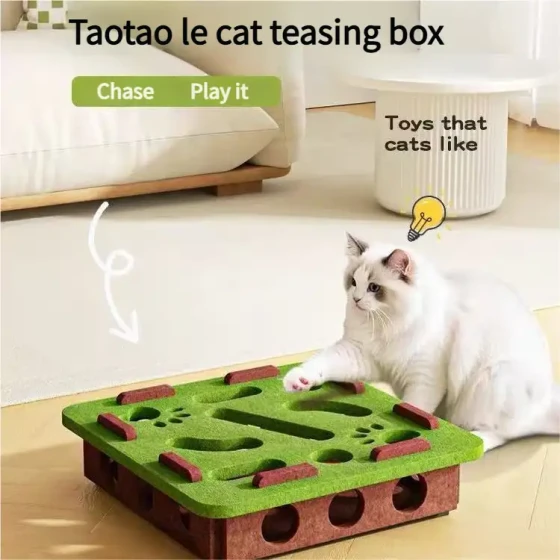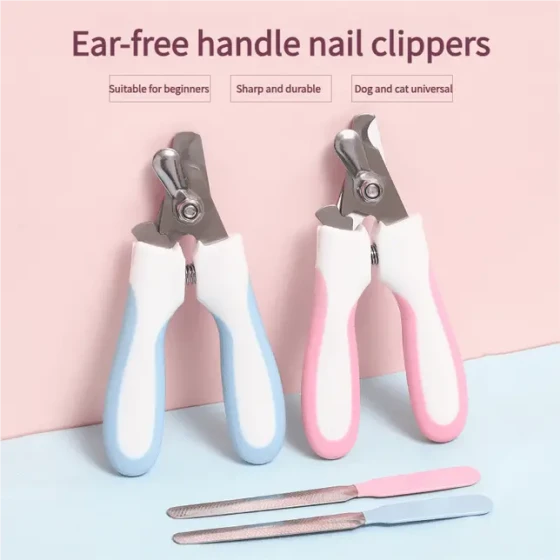Can kittens eat complete cat food_Important considerations for feeding kittens complete cat food
Kittens can eat complete cat food, but pet owners need to pay attention to choosing complete cat food that meets kittens' growth development needs, and focus on feeding methods and precautions. Complete cat food is designed to provide cats with comprehensive and balanced nutrition required at different life stages. However, kittens have unique nutritional requirements, especially regarding protein, fat, vitamins, and minerals, which are generally higher than those of adult cats.
What is complete cat food?

Complete cat food, as the name suggests, is cat food that can meet all nutritional needs of cats at a specific life stage or all life stages. According to domestic or international cat food standards (such as AAFCO - Association of American Feed Control Officials), if a cat food label indicates "complete," it means it can serve as the main food source for cats without the need for additional nutritional supplementation.
Special treatment for kittens: Why higher standards are needed?
Kittens are in a rapid growth and development phase, like "shooting" bamboo, requiring a large amount of "building materials" and "energy" to support all aspects of their body. Compared to adult cats, kittens have several distinct nutritional demands:
- Higher protein requirement: Protein is key for building muscles, organs, and repairing tissues. Kittens need a higher proportion of protein to support their rapid physical development. AAFCO standards recommend kitten food have a minimum crude protein content of 30%, while adult cat food should not be less than 26%.
- Greater fat and calorie needs: Fat is an important energy source for kittens and helps them absorb fat-soluble vitamins, maintaining skin and coat health. Kittens are very active and have fast metabolism, requiring more calories to meet their growth and activity demands.
- More critical vitamins and minerals: Calcium, phosphorus, and vitamin D are essential for healthy bone and teeth development in kittens. Additionally, kittens need nutrients like taurine and DHA to support normal vision, brain, and heart development.
Can kittens eat complete cat food?
Returning to the original question, can kittens eat complete cat food? The answer is: it depends on the specific type of complete cat food.
Some complete cat foods are designed for "all life stages" and claim to meet the nutritional needs from kitten to senior cats. Theoretically, if an all life stage complete cat food meets the highest nutritional standards required for kittens (since kittens have the highest demands), then kittens can eat it.
However, to better meet the special needs of kittens, many brands offer specialized "complete kitten food." These formulas are adjusted according to kittens’ growth characteristics, such as higher protein content, moderate fat levels, kibble sizes suitable for kittens' mouths and teeth, and may include additional nutrients promoting kitten development like goat milk powder, DHA, and EPA.
Therefore, the most recommended approach is to choose complete cat food specifically labeled for "kitten" or "queen cats" for your kitten.
If there are cats of different ages at home, or for other reasons you choose to feed all life stage complete cat food, owners need to carefully check the nutrition label to ensure key indicators such as protein, fat, and calcium to phosphorus ratios meet kittens' needs. Sometimes, all life stage cat foods have a slightly higher calorie density than adult cat food to allow kittens to obtain enough energy with relatively smaller portions.
Precautions for feeding kittens complete cat food
When feeding kittens complete cat food, besides selecting suitable cat food, pay attention to the following points:
- Gradual transition: When switching a kitten's food, use the "seven-day transition method" by mixing new food with old food and gradually increasing the new while decreasing the old, allowing the kitten’s digestive tract to adapt slowly and avoid indigestion.
- Small frequent meals: Kittens have small stomachs but need frequent energy replenishment. It’s recommended to feed 4-5 times a day for kittens aged 2-4 months, 3-4 times a day for 4-6 months, and 2-3 times once over 6 months.
- Control feeding amount: Although kittens require abundant nutrition, overfeeding can lead to obesity and health issues. Follow recommended feeding amounts on food packaging and adjust based on the kitten’s weight, body shape, and activity level. A healthy kitten should have a proportionate body shape and be energetic.
- Provide plenty of fresh water: Whether feeding dry or wet food, make sure kittens always have access to clean, fresh water.
- Monitor the kitten’s condition: After feeding new food, observe the kitten’s mental state, appetite, weight changes, and stool conditions. If vomiting, diarrhea, loss of appetite or other abnormalities appear, consult a veterinarian promptly.
- Wet food or softened dry food: For newly weaned or very young kittens (around 2 months), whose teeth and digestive systems are not fully developed, feed kitten wet food directly or soften dry kitten food with warm water or pet-specific goat milk powder before feeding. As kittens grow, gradually reduce added moisture and transition to fully dry food.
- Avoid human food and inappropriate snacks: Human foods or unsuitable treats may contain harmful substances for cats and cause nutritional imbalance or health problems.
Frequently Asked Questions
Q: At what age can kittens start eating cat food?
A: Generally, kittens can start trying some solid food around four weeks old, such as softened kitten food or kitten wet food. After weaning (usually around two months), they can mainly be fed kitten food.
Q: What is the difference between complete kitten food and complete adult cat food?
A: Complete kitten food usually contains higher protein, fat, and specific mineral contents to support rapid growth. Adult cat food focuses more on maintaining adult cats’ weight and health, and may include formulas to help hairball removal and prevent urinary tract issues. Also, kitten food kibble is typically smaller, easier for kittens to chew and digest.
Q: What if I accidentally fed adult cat food to a kitten?
A: Small amounts in the short term may not cause major problems, but long-term feeding of adult cat food can cause malnutrition in kittens because adult formulas do not meet their growth needs. Additionally, some adult formulas are acidifying, which may negatively affect kittens’ bone development if fed long term. Adult kibble is also larger, making it harder for kittens to chew and digest.
Q: How to determine if a cat food is suitable for kittens?
A: First, check if the packaging clearly states "kitten" or "all life stages." Then, review the nutrition label against AAFCO or other authoritative kitten nutrition standards, focusing on protein, fat, calcium, phosphorus, taurine levels. You can also refer to other owners' reviews and choose reputable brands.
Summary
In summary, kittens can eat complete cat food, but to ensure healthy and happy growth, it is strongly recommended to choose complete kitten food specifically designed for them. This kind of cat food better meets the unique nutritional needs of kittens and lays a solid foundation for their development. During feeding, pay attention to gradual transitioning, small frequent meals, controlled feeding amounts, and plenty of water, while closely monitoring kittens’ health. If you have any dietary doubts regarding your cat, the most reliable approach is to consult a professional veterinarian who can provide tailored advice based on your kitten’s specific condition.

-560x560.webp)
